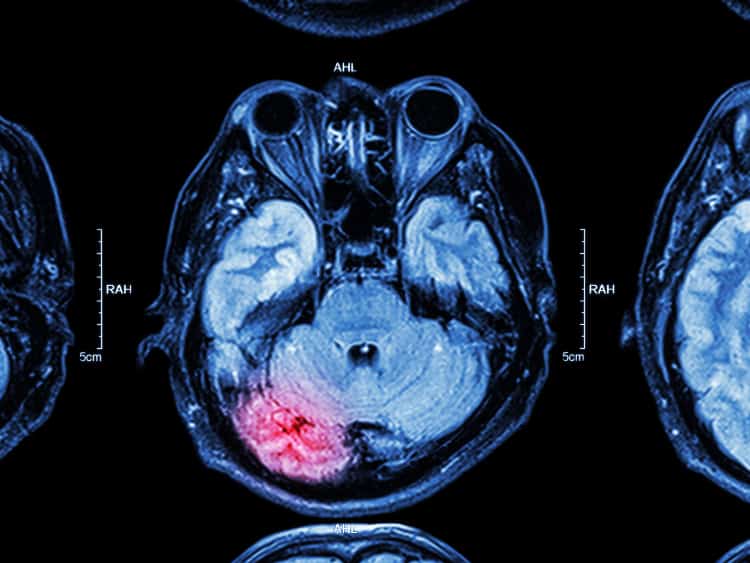Brain Injury Awareness Month: TBI Symptoms to Look for After a Truck Accident

Know the Signs of Traumatic Brain Injury, So You Know When to See a Doctor
Traumatic brain injury (TBI) often results from 18-wheeler accidents, leaving victims with an array of debilitating symptoms. In severe cases, truck wreck survivors with TBIs may have permanent impairments that affect their abilities to think, work, or even take care of themselves. The worst cases are deadly, with at least 166 people in the U.S. dying from TBIs every day.
No matter how a big rig crash causes a TBI, the sooner these injuries are detected and treated, the better. That’s because prompt treatments can greatly improve prognoses and outcomes, which could mean a better quality of life and maybe even a longer one.
Early and ongoing treatments can do more than that, however. They may also support a future truck accident claim by detailing the nature and severity of the TBI, as well as treatment needs and costs.
Accordingly, here are the symptoms of traumatic brain injury to watch out for if you or someone you love has been involved in a tractor-trailer accident. If you notice these symptoms, seek medical attention ASAP to minimize the risks of additional health complications.
Top 3 Types of TBI Symptoms Experienced by Truck Accident Survivors
Offering an easier way to remember the many symptoms of TBIs, this guide classifies and presents traumatic brain injury symptoms by type, including:
- Physical TBI symptoms
- Cognitive TBI symptoms
- Emotional TBI symptoms
Here’s a deeper dive into each group of TBI symptoms and how they can vary according to the severity of the brain injury.
1. Physical TBI Symptoms
Mild to severe traumatic brain injuries can give rise to a range of painful and disabling physical symptoms. Sometimes, it takes time to notice these symptoms because the shock of a truck wreck may eclipse the initial signs of TBIs — and, sometimes, the symptoms are so generic that they’re easily confused with other physical trauma.
The table below compares the physical symptoms of TBIs for mild versus moderate to severe brain injuries. Keep in mind that not everyone will experience every symptom and that the area(s) of the brain that have been damaged will affect the precise nature of the symptoms that develop.
|
Severity of the TBI |
Mild TBIs |
Moderate to Severe TBIs |
|
Physical TBI Symptoms |
Headache Nausea Vomiting Fatigue or drowsiness Dizziness or balance problems Blurred vision Ringing in the ears Sound and/or light sensitivity Difficulties sleeping Sleeping more than usual |
Persistent or worsening headaches Coordination problems Persistent vomiting or nausea Seizures or convulsions Pupil dilation Clear fluid drainage from the nose or ears Weakness or numbness in fingers and toes Problems awaking from sleep |
2. Cognitive TBI Symptoms
Beyond physical trauma, TBIs can also cause several cognitive or thinking-related complications. These symptoms can make it extremely difficult for people to hold down a job or even complete simple day-to-day tasks.
For milder TBI cases, these problems can disappear with time and the proper treatment. When truck accident victims suffer severe traumatic brain injury, however, cognitive symptoms can endure or worsen over a lifetime. The table below highlights the cognitive symptoms of mild versus moderate to severe TBIs.
|
Severity of the TBI |
Mild TBIs |
Moderate to Severe TBIs |
|
Cognitive TBI Symptoms |
Disorientation Difficulties speaking Confusion or “fogginess” Memory impairments Concentration problems Loss of consciousness for a few seconds to a few minutes |
Profound confusion Slurred speech Impulse control problems Loss of consciousness from several minutes to hours Coma |
3. Emotional TBI Symptoms
On an emotional level, the symptoms of traumatic brain injury can be just as devastating as the physical and cognitive complications victims may experience. These symptoms can interfere with personal relationships, socialization, and possibly even the ability to enjoy the same quality of life.
Medications and/or various therapies can be prescribed to address the emotional complications of traumatic brain injury, which are featured in the table below.
|
Severity of the TBI |
Mild TBIs |
Moderate to Severe TBIs |
|
Emotional TBI Symptoms |
Mood changes or mood swings Depression Anxiety |
Agitation Combativeness Other unusual behaviors |
TBIs & 18-Wheeler Accidents: The Bottom Line
When it comes to TBIs caused by truck accidents, the bottom line is that these injuries can have elusive, complex, and even ‘hidden’ symptoms that take time to develop. That’s why it’s prudent to seek medical attention ASAP after a big rig crash. Doctors and others can take swift action to identify and treat TBIs while also creating records that could be vital to a future truck accident case.
